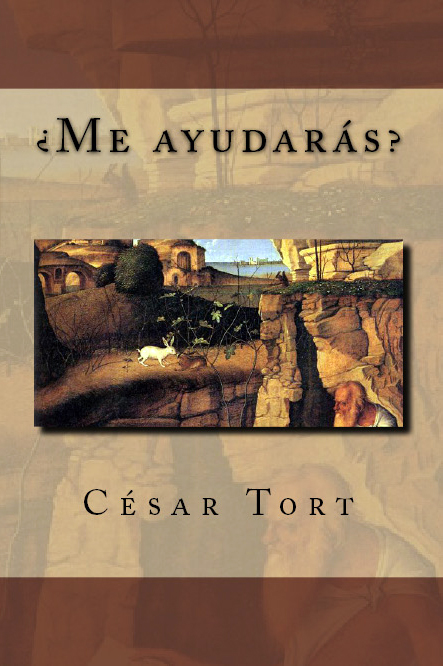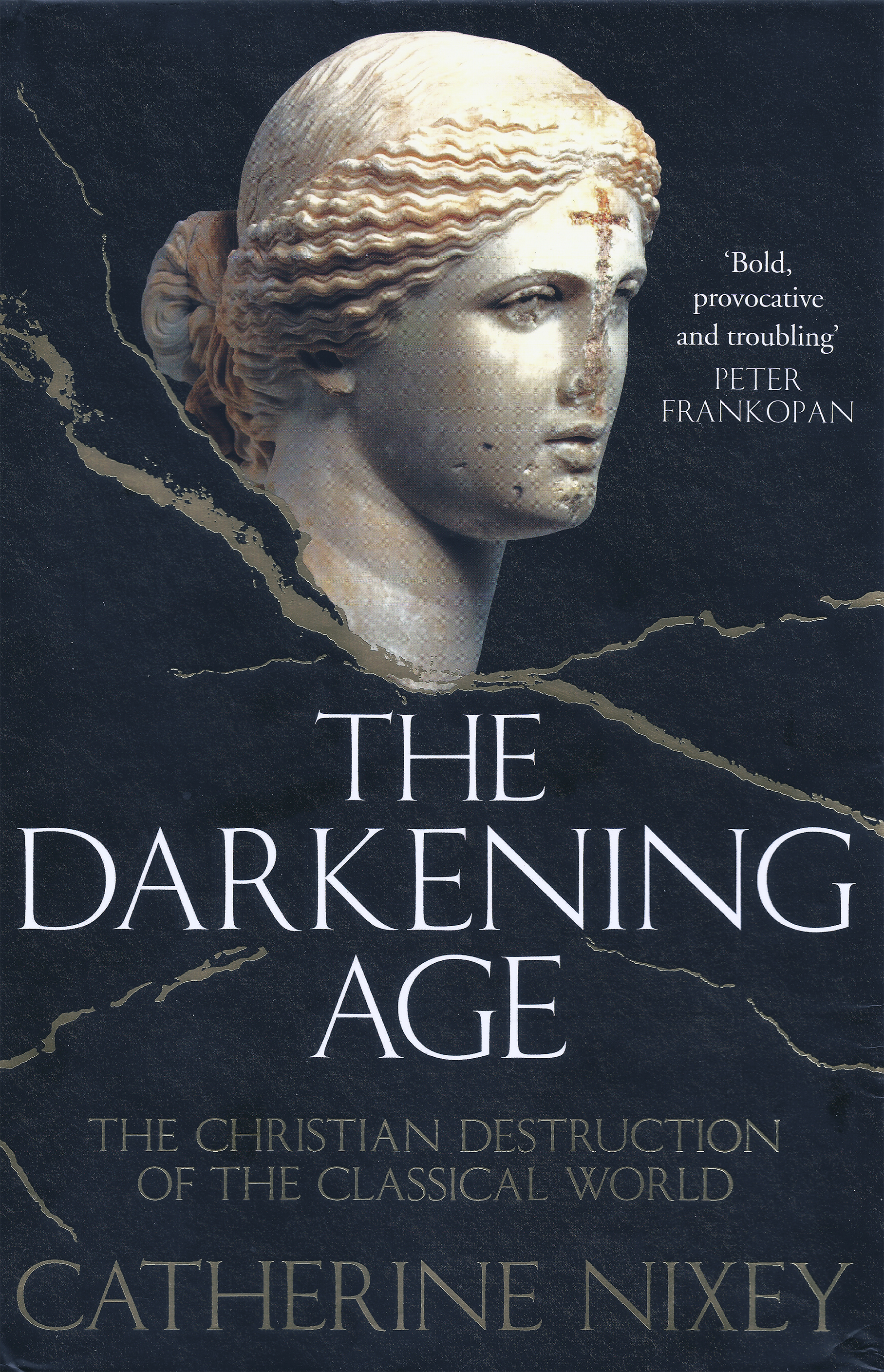Of my male first cousins, there was one I mostly got along with in my twenties.
Today he killed his teenage daughter and then hanged himself.
What I find pathetic is that my cousin was one of the first to read, decades ago, the most primitive draft of the first chapter of my autobiographical book.
He recently asked for family help for a very serious depression. But he did not ask me for any counsel: the only one in the family who could have helped him.
Had I talked to him—I’m the only one in the family who has written books about abuse within our family—I could have tried something.
But that did not happen.
 Even my closest relatives block in their minds my work of decades in which I try to avoid family tragedies by understanding them.
Even my closest relatives block in their minds my work of decades in which I try to avoid family tragedies by understanding them.
I hope that one day my two books that appear in the sidebar will be translated into English…
Category: Autobiography
In the chapter ‘The Invisible Army’ of The Darkening Age: The Christian Destruction of the Classical World, Catherine Nixey talks about how, once the Christians seized the Weltanschauung of the Roman Empire, a demonological hysteria arose that led Christians to a state of virtual paranoia.
It is curious how Christians today ignore fundamental aspects of the history of their religion. When not long ago I told a friend about the demons that persecuted St Anthony the Great (251-356), I found out that he knew nothing about the subject: something so popular throughout Christendom that the ‘temptations of St Anthony’ permeated European imagination for centuries.
 Saint Anthony was the founding father of the monastic life: one of the most influential men in Christianity. As a teenager I saw images like this painting by Grünewald. I knew that the demons (temptations) that the ascetic fought were sexual thoughts that he, who had taken a vow of chastity, had to fight.
Saint Anthony was the founding father of the monastic life: one of the most influential men in Christianity. As a teenager I saw images like this painting by Grünewald. I knew that the demons (temptations) that the ascetic fought were sexual thoughts that he, who had taken a vow of chastity, had to fight.
The case of St Anthony, which Nixey details in the first chapter of her book, was not isolated. My ignorant Catholic friend, who did not know the history of this very influential man, could think that all that lies now in the remote past.
Not really. When I was a teenager my mother used to come to my room with holy water while I slept because she thought the devil had gotten into me. My sister was terrified to see, in puberty, the movie The Exorcist on the big screen because she believed that the devil really existed.
Decades later, when my brother wanted to divorce, my father wrote him a letter saying that the devil was hanging around tempting them to divorce. My mother even summoned her children on one occasion to tell us that, recovering from an operation, she had committed the blunder of challenging the devil so that he would not mess with her children, and that the devil had insinuated her presence in front of her. A priest scolded her: the devil should never be challenged: only ignored. More recently, some nuns told my mother that the noises they heard in their monastery were angry demons due to the saintly work of the nuns.
This is not the place to narrate how the Catholicism at home was a fundamental factor in the destruction of my adolescent life. I would just like to point out that, in Nixey’s chapter, it is described how, once the classical culture was destroyed, the Europeans were under perpetual attack by Satan and his fearsome soldiers, the demons. Their aim, in European imaginary, was to drag them all to damnation.
Currently a residue of this paranoia is only seen in the most traditional Christian families.
‘That all superstition of pagans and heathens should be annihilated is what God wants, God commands, God proclaims.’
— St Augustine
This was no time for a philosopher to be philosophical. ‘The tyrant’, as the philosophers put it, was in charge and had many alarming habits. In Damascius’s own time, houses were entered and searched for books and objects deemed unacceptable. If any were found they would be removed and burned in triumphant bonfires in town squares. Discussion of religious matters in public had been branded a ‘damnable audacity’ and forbidden by law. Anyone who made sacrifices to the old gods could, the law said, be executed. Across the empire, ancient and beautiful temples had been attacked, their roofs stripped, their treasures melted down, their statues smashed. To ensure that their rules were kept, the government started to employ spies, officials and informers to report back on what went on in the streets and marketplaces of cities and behind closed doors in private homes. As one influential Christian speaker put it, his congregation should hunt down sinners and drive them into the way of salvation as relentlessly as a hunter pursues his prey into nets.
The consequences of deviation from the rules could be severe and philosophy had become a dangerous pursuit. Damascius’s own brother had been arrested and tortured to make him reveal the names of other philosophers, but had, as Damascius recorded with pride, ‘received in silence and with fortitude the many blows of the rod that landed on his back’. Others in Damascius’ s circle of philosophers had been tortured; hung up by the wrists until they gave away the names of their fellow scholars. A fellow philosopher had, some years before, been flayed alive. Another had been beaten before a judge until the blood flowed down his back.
The savage ‘tyrant’ was Christianity. From almost the very first years that a Christian emperor had ruled in Rome in AD 312, liberties had begun to be eroded. And then, in AD 529, a final blow had fallen. It was decreed that all those who laboured ‘under the insanity of paganism’—in other words Damascius and his fellow philosophers—would be no longer allowed to teach. There was worse. It was also announced that anyone who had not yet been baptized was to come forward and make themselves known at the ‘holy churches’ immediately, or face exile. And if anyone allowed themselves to be baptized, then slipped back into their old pagan ways, they would be executed.
For Damascius and his fellow philosophers, this was the end. They could not worship their old gods. They could not earn any money. Above all, they could not now teach philosophy. The Academy, the greatest and most famous school in the ancient world—perhaps ever—a school that could trace its history back almost a millennium, closed.
It is impossible to imagine how painful the journey through Athens would have been. As they went, they would have walked through the same streets and squares where their heroes—Socrates, Plato, Aristotle—had once walked and worked and argued. They would have seen in them a thousand reminders that those celebrated times were gone. The temples of Athens were closed and crumbling and many of the brilliant statues that had once stood in them had been defaced or removed. Even the Acropolis had not escaped: its great statue of Athena had been torn down.
Little of what is covered by this book is well-known outside academic circles. Certainly it was not well-known by me when I grew up in Wales, the daughter of a former nun and a former monk. My childhood was, as you might expect, a fairly religious one. We went to church every Sunday; said grace before meals, and I said my prayers (or at any rate the list of requests which I considered to be the same thing) every night. When Catholic relatives arrived we play-acted not films but First Holy Communion and, at times, even actual communion…
As children, both had been taught by monks and nuns; and as a monk and a nun they had both taught. They believed as an article of faith that the Church that had enlightened their minds was what had enlightened, in distant history, the whole of Europe. It was the Church, they told me, that had kept alive the Latin and Greek of the classical world in the benighted Middle Ages, until it could be picked up again by the wider world in the Renaissance. And, in a way, my parents were right to believe this, for it is true. Monasteries did preserve a lot of classical knowledge.
But it is far from the whole truth. In fact, this appealing narrative has almost entirely obscured an earlier, less glorious story. For before it preserved, the Church destroyed.
In a spasm of destruction never seen before—and one that appalled many non-Christians watching it—during the fourth and fifth centuries, the Christian Church demolished, vandalized and melted down a simply staggering quantity of art. Classical statues were knocked from their plinths, defaced, defiled and torn limb from limb. Temples were razed to their foundations and burned to the ground. A temple widely considered to be the most magnificent in the entire empire was levelled.
Many of the Parthenon sculptures were attacked, faces were mutilated, hands and limbs were hacked off and gods were decapitated. Some of the finest statues on the whole building were almost certainly smashed off then ground into rubble that was then used to build churches.
Books—which were often stored in temples—suffered terribly. The remains of the greatest library in the ancient world, a library that had once held perhaps 700,000 volumes, were destroyed in this way by Christians. It was over a millennium before any other library would even come close to its holdings. Works by censured philosophers were forbidden and bonfires blazed across the empire as outlawed books went up in flames.

Fragment of a 5th-century scroll
showing the destruction of the Serapeum
by Pope Theophilus of Alexandria
The work of Democritus, one of the greatest Greek philosophers and the father of atomic theory, was entirely lost. Only one per cent of Latin literature survived the centuries. Ninety-nine per cent was lost.
The violent assaults of this period were not the preserve of cranks and eccentrics. Attacks against the monuments of the ‘mad’, ‘damnable’ and ‘insane’ pagans were encouraged and led by men at the very heart of the Catholic Church. The great St Augustine himself declared to a congregation in Carthage that ‘that all superstition of pagans and heathens should be annihilated is what God wants, God commands, God proclaims!’ St Martin, still one of the most popular French saints, rampaged across the Gaulish countryside levelling temples and dismaying locals as he went. In Egypt, St Theophilus razed one of the most beautiful buildings in the ancient world. In Italy, St Benedict overturned a shrine to Apollo. In Syria, ruthless bands of monks terrorized the countryside, smashing down statues and tearing the roofs from temples.
St John Chrysostom encouraged his congregations to spy on each other. Fervent Christians went into people’s houses and searched for books, statues and paintings that were considered demonic. This kind of obsessive attention was not cruelty. On the contrary: to restrain, to attack, to compel, even to beat a sinner was— if you turned them back to the path of righteousness—to save them. As Augustine, the master of the pious paradox put it: ‘Oh, merciful savagery.’
The results of all of this were shocking and, to non-Christians, terrifying. Townspeople rushed to watch as internationally famous temples were destroyed. Intellectuals looked on in despair as volumes of supposedly unchristian books—often in reality texts on the liberal arts—went up in flames. Art lovers watched in horror as some of the greatest sculptures in the ancient world were smashed by people too stupid to appreciate them—and certainly too stupid to recreate them.
Since then, and as I write, the Syrian civil war has left parts of Syria under the control of a new Islamic caliphate. In 2014, within certain areas of Syria, music was banned and books were burned. The British Foreign Office advised against all travel to the north of the Sinai Peninsula. In 2015, Islamic State militants started bulldozing the ancient Assyrian city of Nimrud, just south of Mosul in Iraq because it was ‘idolatrous’. Images went around the world showing Islamic militants toppling statues around three millennia old from their plinths, then taking hammers to them. ‘False idols’ must be destroyed. In Palmyra, the remnants of the great statue of Athena that had been carefully repaired by archaeologists, was attacked yet again. Once again, Athena was beheaded; once again, her arm was sheared off.
I have chosen Palmyra as a beginning, as it was in the east of the empire, in the mid-380s, that sporadic violence against the old gods and their temples escalated into something far more serious. But equally I could have chosen an attack on an earlier temple, or a later one. That is why it is a beginning, not the beginning. I have chosen Athens in the years around AD 529 as an ending—but again, I could equally have chosen a city further east whose inhabitants, when they failed to convert to Christianity, were massacred and their arms and legs cut off and strung up in the streets as a warning to others.
Three stages
From the point of view of faith in the gospel, in my struggle against the teachings of my parents I went through three stages. In my childhood and adolescence I did not know that the gospels were highly problematic texts; in my twenties I discovered that they were problematic but, somehow, I was stuck in their message; and finally, I achieved full apostasy in my adulthood.
 Many white nationalists are stuck in the first stage. As it is very difficult to jump from the first to the third stage, I have moved a chapter of Jesus: The evidence to my site Ex Libris, so that it can be read more comfortably there. Keep in mind that the author, Ian Wilson, a Roman Catholic, is stuck in the second stage, and will surely die stuck in it. In the late eighties I exchanged a couple of letters with Wilson discussing the Shroud of Turin. But that is another story…
Many white nationalists are stuck in the first stage. As it is very difficult to jump from the first to the third stage, I have moved a chapter of Jesus: The evidence to my site Ex Libris, so that it can be read more comfortably there. Keep in mind that the author, Ian Wilson, a Roman Catholic, is stuck in the second stage, and will surely die stuck in it. In the late eighties I exchanged a couple of letters with Wilson discussing the Shroud of Turin. But that is another story…
On the admin of this site
Below, an excerpted translation from the German Metapedia’s
article about me (the below pic was taken in 1973):
______ 卐 ______
C.T. (born 1958) is a private scholar and writer living in Mexico City. He publishes in Spanish and English, with emphasis on analysis of childhood trauma related to abuse. He acts as a staunch advocate of combative white self-assertion, including his blog The West’s Darkest Hour. In 2017, C.T. recorded the production of English-language radio broadcasts.
C.T. is the son of a composer known in Mexico in the tradition of classical music; his mother was a concert pianist. Remotely, he traces his origins back to Spanish ancestors.
 The parental home was not only very Catholic, it was also the place where he experienced maltreatment as a teenager: experiences that shaped his character. Decades later, he made this topic the subject-matter of various publications that aim to prevent such events.
The parental home was not only very Catholic, it was also the place where he experienced maltreatment as a teenager: experiences that shaped his character. Decades later, he made this topic the subject-matter of various publications that aim to prevent such events.
Christianity as the downfall of Whites
Mentally and spiritually, C.T. turned his back on Christianity in adulthood. He considers this religion to be an outrageous ‘death cult for whites’. All white values have been inverted by Christianity since its emergence in Europe, so that sub-humanism can be spread and triumph unhindered, while the white race is increasingly degenerating, to such an extent that it must fight for its bare survival.
In his investigations and assessments C.T. uses the German philosopher Friedrich Nietzsche and the champion of white race interests, William Pierce, whom he considers the greatest spirit America has produced.
Already at the conquest of the American continent, the Spaniards and Portuguese had spoiled their blood due to an ignominious, racial mixture of Christian convictions (‘all human brethren in Christ’). In this context C.T. strongly disagrees with what he calls ‘monocausalists’, who only blame the long-lasting, vicious Jewish influence, for the decline of whites. Long before Jews had set foot on American soil, the Christian European conquerors and colonists, including Englishmen and Frenchmen, were driven by greed to ensure that the conquered territories were filled with mestizos and Mulattoes.
Attitude to the Germans
C.T. shows an exceptionally strong understanding and sympathy for the Germans, especially as far as their historical fate is concerned. In his opinion, the two world wars fought against Germany in the 20th century were the most fatal crimes that whites ever instigated. Instead of living peacefully in the guise of the ‘crown of evolution’, the Germans of that time, the leaders of the Anglo nations decided to create a world in which the cloaca gentium of the human race is on top.
The most indispensable book that every white man should read to focus on the monstrous acts done to the Germans, and to provide a foundation for contemporary historical education and judgment, explains C.T., is Hellstorm: The Death of Nazi Germany, 1944-1947.
Christians can think of themselves as anti-Jewish without understanding that they are the ultimate conclusion of Judaism. —Nietzsche
Further to what I said in my February entries ‘La Santa Furia’ and ‘Working’. I am now reviewing the 730 pages of my second and last book, in which I analyse my father as the central figure among those who destroyed my life; besides analysing my mother and other victims of them, like my sister and a cousin. My philosophy of the four words appears in the final section.
What I write in my mother tongue is as important, or more important, than what I write in English. But except for a Swede who became disenchanted with me when he learned about my political ideas, nobody in the world has fully appreciated the work in my native language. And it’s striking that someone who processes, over the decades, the pain of the crime that he was the object as a minor is able to see the world so differently that it would seem the mind of an extraterrestrial.
For example, in recent times a certain Ciaran, the same Irishman who complained about destroying the churches (quoted in an entry linked above), has been sending me copies of his correspondence with Alex Linder and others. Although Ciaran confesses to me that he has suffered a mental disorder, he has not paid attention to me in that the only way to heal is to process the pain. (Something I compare with an oil refinery in the sense that crude oil is the unprocessed early traumas that got to be processed.)
 Instead, in his letter to Linder today (electronic copy to me), this traditionalist Christian starts talking about the ‘fact’ that the condemned are burning in hell without even knowing who he’s is sending a copy. (At the end of my first book, Hojas Susurrantes, I recount the unspeakable experiences I suffered in San Rafael, California, for having introjected the doctrine of the eternal damnation of my abusive father.) And today, in my previous entry of the Kriminalgeschichte series, another idiot posts again a comment mentioning such doctrine. (Take into account that of this Dutchman I have been deleting several other comments over the years in which he had written stupid things like, ‘hell is eternal’, ‘my religion’, etc.).
Instead, in his letter to Linder today (electronic copy to me), this traditionalist Christian starts talking about the ‘fact’ that the condemned are burning in hell without even knowing who he’s is sending a copy. (At the end of my first book, Hojas Susurrantes, I recount the unspeakable experiences I suffered in San Rafael, California, for having introjected the doctrine of the eternal damnation of my abusive father.) And today, in my previous entry of the Kriminalgeschichte series, another idiot posts again a comment mentioning such doctrine. (Take into account that of this Dutchman I have been deleting several other comments over the years in which he had written stupid things like, ‘hell is eternal’, ‘my religion’, etc.).
Christians or neo-Christians who believe they are helping their race with their twisted minds are, in fact, contributing to the white race dying. The reason for this is not only guessed in the essay ‘Rome vs. Judea’, but in the Kriminalgeschichte series that I translate little by little.
Little by little I say because, although now I am so busy that I will reduce my work on this site to the minimum until I finish the review of my second book, even after I finish I don’t think I’ll continue to translate the Kriminalgeschichte articles daily, as I did in the past. I will translate them, yes, but in a more spaced way. It is not an issue that attracts much attention because white nationalists believe that Jews, not Christians, are the primary cause of Aryan decline.
For an autobiographer who has processed his traumas inflicted at home, it is incredible the level of dissociation and madness that the movement suffers: a movement that presumes to defend the Aryan race and remains addicted to the millennial Jewish drug. And with this I also mean those English Christians who spoke in a podcast about the article by Hunter Wallace that I mentioned at an entry a couple of days ago. Manu Rodríguez wrote:
We are not ourselves; we cannot speak out as long as we try to speak from that space: the Jewish-Christian-Muslim milieu. Within these traditions we are not ourselves, we disappear.
Like Evropa Soberana, Rodríguez is Spanish. I translated the above quote from the language of Cervantes. Isn’t it funny that this pair of Spanish speakers have a better grasp of how to defend their race than the English speakers of the Alt-Right?

My correspondent Kurt Johmann asked me to say something about ‘A Brief Analysis of Christianity’, a section within his book A Soliton and its owned Bions (Awareness and Mind) which subtitle reads ‘These Intelligent Particles are how we Survive Death’.
As to the origins of Christianity, Johmann relies heavily on Joseph Atwill’s 2006 Caesar’s Messiah: The Roman Conspiracy to Invent Jesus. I don’t claim to have read Caesar’s Messiah, but the book has become so popular that Wikipedia has an article about it. In the last couple of years I’ve seen mentions to Atwill’s book in white nationalist forums as if it was a great discovery on the origins of Christianity.
As can be gathered from the book reviewers, Atwill tries to persuade the reader that the New Testament was written under the direction of 1st-century Roman whites. Those who know the new masthead of this site, Evropa Soberana’s essay on Rome and Judea, will find it strange that Atwill would not blame the Jews for creating Christianity. He blames an emperor of the Flavian dynasty.
A Roman fraud written by a Jewish traitor in the emperor’s pay? Really? Are we to believe that the Aryan Romans really cared about the primitive literature of distant Semites enough to go through the trouble of using the Septuagint to elaborate the New Testament, with fake Pauline and non-Pauline epistles, numinous gospel narratives and even a book of revelation that craves for a New Jerusalem right after the emperors destroyed Old Jerusalem? Is this credible taking into account that this John of Patmos was so anti-pagan that in the final book of the Bible he introduced the idea of eternal torment for non-Judeo-Christians in a lake of fire?
As can be seen in the recent entries of this site, our working hypothesis is that the authors of the New Testament were either non-Aryan Judaized gentiles or, like this John of Patmos, Hellenised Jews whose hatred for white Rome was infinite.
Also, Atwill’s assertion that Jesus was a totally a fictional character is only a possibility. I am open to such possibility, as can be seen in this article by Joseph Hoffmann. However, another possibility is that a historical Yeshua existed and a lot of literary fiction was later added onto an original, bare, all too human story that is now lost forever (e.g., what Soberana speculates about the historical Jesus in his essay).
Johmann writes: ‘Although Christianity was originally contrived and constructed [by Romans] to domesticate the recently conquered population of Judea…’ According to our recent quotations of Nietzsche in this blog it looks the other way: Christianity was originally contrived and constructed by Jews to domesticate those who recently had conquered their population of Judea.
In his brief analysis of Christianity’ Johmann also wrote:
Instead of having to accept the reality model of Christianity or of any other religion to have a good afterlife, the reality model presented in this book says that what one consciously believes about the afterlife during one’s physically embodied life has no substantial effect on what one’s afterlife experiences will be, during what will be an afterlife measured in years or many years (not Christianity’s eternity) before one reincarnates, most likely reincarnating as a human again.
Regarding Christianity’s position on sexual matters, Christianity has a long history of being hostile to sex for any purpose other than the production of children. Thus, given this emphasis on having children, Christianity, in general, has a history of being against birth control, abortion, infanticide, and homosexuality. The reason Christianity has these attitudes is because Christianity wants its current believers to have many children…
The first paragraph postulates the existence of reincarnation.
In the late 1980s and early 1990s I was heavily involved in the field of parapsychology and even published my stuff in the journal of the Society for Psychical Research. I am pretty familiar with the literature arguing for evidence of reincarnation, for example the work of Ian Stevenson. With time, after meeting in person the main intellectuals of a sceptic organization, subscribing their journal, and purchasing many books published by Prometheus Books, I became sceptical of such claims, including reincarnation.
In a blog post I cannot narrate the spiritual odyssey from my credulity in such phenomena to my apostasy: I would need a whole autobiographical book recounting my inner experiences from December 1978 to May 1995. Suffice it to say that I am familiar with the work of Sue Blackmore. Sue has written a lot about out-of-body experiences, that Johmann mentions elsewhere in his book. She says such experiences may have a more prosaic, parsimonious explanation than the paranormal one (incidentally, in a Seattle café I sat with Sue and other attendees during one of the sceptical conferences that we all attended).
As to the second paragraph by Johmann cited above, not only Christianity has been hostile to sex for any purpose other than the production of children. Other cultures and religions, even the Nazis, had a history against Aryan birth control, abortion, infanticide, and homosexuality.
This said, I basically agree with the last paragraph against Christianity in Johmann’s text: that prayer is silly because, as Johmann put it, ‘is only “heard” by one’s own unconscious’, and that trying to solve our problems with prayer, begging the god of the Jews to help us, only forfeits our duty of hard, Aryan work in the real world.
Finally, La Santa Furia, the oratorio-opera of my late father, was premiered this Friday, and also today, at the Palacio de Bellas Artes.
La Santa Furia is a tribute to the Dominican Friar Bartolomé de Las Casas. One of the main prelates of the order of the Dominicans crossed the Atlantic, from Rome, to attend the premiere.
After today’s event, at the private banquet with over fifty select guests, I sat at a table with four Catholic priests who attended the opera. Never in my life had I shared the table with so many priests.
About La Santa Furia I have already written a bit on this blog (see e.g.: here) and will expand my criticism in a book. For the moment I would just like to respond to an email that came to me today from a most traditional Christian:
Cesar,
On your blog, you fantasise about burning all Churches to the ground. Did you ever hear Émile Zola’s quote on the issue? ‘Civilisation will not attain to its perfection until the last stone from the last church falls on the last priest’.
Of course, I, as a pre-Conciliar Roman Catholic, disagree with you, here. Do we really want to burn down Saint Peter’s—designed by Freemasons Bernini and Michelangelo? Its Egyptian Obelisk? Domed Roof? Do we really want to burn down Pisa Cathedral and other sublime architectural triumphs?
The Notre Dame in Paris was built by Templars. It has the twin towers, of Joachim and Boaz, representing the balance of hatred and love; black and white. Again, this is architecture that contradicts the ‘love your enemies’ slave morality of the Gospels.
A ‘bonfire of the vanities’ would be welcomed by Biblicists and puritans. The Bible—promoting mediocrity in everything—wants you to pray in your closet/inner room. It’s funny that in the KJV, Jesus Christ tells you to go into the closet! The KJV was translated by homosexuals.
I follow the fundamentalist protestants quite closely, and a lot of them only believe in house churches: worshipping Adonai and Messiah at home. Burning a lot of these crypto-Masonic and crypto-druidic edifices would be to play into their hands.
I agree with you: everything derived from Judaism, in Catholicism, needs to be ruthlessly expunged. In the Marcionite version of the myth of Our Lord and Savior, Jesus Christ, He shows up, miraculously; in Palestine, condemns Jews, calls for their extermination, and then ascends to Heaven. Crucifixion optional.
Unfortunately, the cause of Marcion did not prevail within the Catholic Church.
C.
Playing into the hands of the Protestants? Hardly: In my little Utopia no Protestant would remain alive.
As to the buildings, even before receiving this letter I had thought about the subject. I would respect the cathedrals, although I would order not to repair them throughout the millenary Reich. With time they would collapse by themselves, in an era when there is no longer any Christian on the face of the Earth.
In the case of St. Peter’s Basilica things are very different. The third article of Nietzsche’s Law against Christianity must be fulfilled: ‘The execrable location where Christianity brooded over its basilisk eggs should be razed to the ground and, being the infamous spot on earth, it should be the horror of all posterity…’
At this point it is necessary to confess something to my readers.
Several times I have said on this site that Day of Wrath is just a selection of Hojas Susurrantes and ¿Me Ayudarás? What I have not clarified with enough emphasis is that these last two books are basically autobiographical, where I tell a family tragedy in which Christianity played a central role. From that family drama, the selection I made for Day of Wrath astutely eluded the tragic narrative. The internet is not the place to tell personal tragedies. (Incidentally, La Santa Furia translated into English reads Holy Wrath.)
The only thing I can say here is that I can only be vindicated with the absolute destruction of Christianity and those I call Neanderthals: something that could only happen posthumously, insofar as I do not have the philosopher’s stone.
But vindication is not only mine. The fate of the Aryan race is closely linked, in a negative way, to the religion of our parents.
Of the living men whose name every pro-white has heard, I only have met two of them personally, both in England. One of them, a traditional Catholic, was not long ago, along with other protesters, in the Jewish quarter of London to protest publicly.
I would never do such a thing. For me it is obvious that the white traitor is worse than the Jew, and that we should focus on the cause instead of the symptom. Without White betrayal there would be no Jews in power. This is even inferred from Rome vs. Judea, as well as in my comments on the Kriminalgeschichte translations. To paraphrase Codreanu, there would be no mosquitoes without the swamps of our sins. Superficially, white nationalists focus on mosquitoes. This site focuses on the swamp.
So instead of going to protest a kike neighbourhood, if I did activism I would do a demonstration never done before in the West. I would do picketing outside the Vatican, or the most important churches in Europe and America, with slogans like Nietzsche’s ‘Transvaluation of all values!’ Or Zola’s quoted above: ‘…until the last stone from the last church falls on the last priest!’
No swamps, no mosquitoes. If whites abandoned Christian ethics the JQ would be resolved overnight. In other words: if the tens of thousands of white nationalists were not like Franklin Ryckaert but shared the santa furia of this blog, the non-gentiles would already be trembling.
Obviously I did not say any of these things during today’s meal sitting next to so many priests, including the Dominican who made a special trip from Rome.
I behaved like a saint.
HS
After being deplatformed from another press last year, at last my Hojas Susurrantes is back, this time through Amazon Books.
The goal of my autobiographical books: Know thyself! He who knows himself will abandon Judeo-Christianity and may finally remove the virulence of the Semitic malware that destroys the white race.
 This photo of me, dated September 1973, appears on page 12 in this 672-page book. Although I opened an Amazon account for this book last year, in fact, the published prologue is from this very month.
This photo of me, dated September 1973, appears on page 12 in this 672-page book. Although I opened an Amazon account for this book last year, in fact, the published prologue is from this very month.
HS consists of five sections. Only the fourth section has been translated for Day of Wrath.
Since the last year the German Metapedia started an article about me. I will try to contact the editor as I have changed the title of my final book, Exterminio to ¿Me Ayudarás? which will be available only for a select group of readers by the end of the next month.
(I am awaiting that my late father’s oratorio titled La Santa Furia is premiered on February 23, 2018 in the Palacio de Bellas Artes to add an appendix to ¿Me Ayudarás? before publishing it.)

